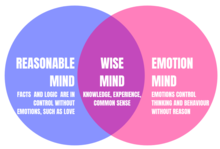Embrace Change with DBT London: Your Overview to Mental Health
Embrace Change with DBT London: Your Overview to Mental Health
Blog Article
Encouraging Individuals With Efficient Dialectical Behavior Treatment (DBT) Providers: Building Stronger Mental Health And Wellness Foundations
In the world of mental health and health, the value of empowering individuals via effective Dialectical Practices Treatment (DBT) solutions can not be overemphasized. By focusing on the core principles of DBT, such as improving emotional regulation skills, enhancing social performance, building distress tolerance techniques, and cultivating mindfulness techniques, individuals can begin on a trip in the direction of building stronger mental health and wellness foundations.
Comprehending the Core Principles of DBT


One core principle of DBT is recognition. One more fundamental aspect is dialectics, which shows people to watch situations from multiple perspectives and locate the synthesis between contradictory thoughts or feelings.
In addition, the idea of dialectical abstinence is central to DBT. This concept motivates people to stay away from self-destructive habits while also accepting themselves. By recognizing and including these core principles, specialists can properly execute DBT strategies and assistance individuals in their journey in the direction of psychological guideline and psychological wellness.
Enhancing Emotional Guideline Skills
Creating efficiency in managing emotions is a basic element of cultivating mental wellness and interpersonal effectiveness - DBT London. Enhancing emotional guideline skills is a core element of Dialectical Behaviour Therapy (DBT) that gears up people with the tools to browse extreme emotions in a healthy and constructive manner. Via DBT, individuals find out to recognize, comprehend, and regulate their feelings, leading to improved psychological health and wellness outcomes
DBT highlights the value of mindfulness, which includes existing in the minute without judgment. This practice enables people to observe their feelings without becoming bewildered by them, boosting their capacity to react effectively instead than respond impulsively. By cultivating mindfulness, individuals can establish a greater feeling of self-awareness and emotional control.
In addition, DBT instructs functional abilities such as distress tolerance and emotion guideline methods to help people manage tough emotions. By finding out these skills, people can lower impulsive habits, enhance decision-making, and strengthen their connections with others. Inevitably, boosting emotional policy skills with DBT encourages people to lead even more satisfying and well balanced lives.

Improving Interpersonal Effectiveness
Having actually established a strong structure in psychological regulation abilities within the structure of Dialectical Behaviour Treatment (DBT), the emphasis now changes in the direction of boosting social effectiveness. Improving social efficiency is a critical component of DBT as it outfits individuals with the needed skills to browse social communications, connect efficiently, established boundaries, and build healthier partnerships.
In DBT, interpersonal performance skills are taught via components that concentrate on areas such as assertiveness, effective interaction, our website and interpersonal problem-solving. By learning these abilities, individuals can boost their ability to reveal their desires and requirements, preserve self-regard, and develop stronger links with others.
Practicing mindfulness is an essential component of improving social performance within the DBT framework. Mindfulness permits individuals to be present in their interactions, listen actively, and react thoughtfully as opposed to react impulsively. By integrating mindfulness into their day-to-days live, people can cultivate higher self-awareness and emotional policy, which are crucial for effective social interactions.
Building Distress Tolerance Strategies
Discovering efficient techniques for managing psychological distress is vital for individuals looking for to enhance their coping abilities and durability. Structure distress tolerance techniques is a critical facet of Dialectical Practices Treatment (DBT) that encourages people to navigate tough emotions without coming to be overwhelmed - DBT London. One essential technique in DBT for distress resistance is the acronym "APPROVES," which means Activities, Contributing, Contrasts, Emotions, Pushing away, Thoughts, and Experiences. By utilizing these approaches, people can properly deal with stressful situations and manage their emotional responses.
In addition, mindfulness techniques play a considerable function in structure distress resistance. Mindfulness urges people to stay present in the minute without judgment, allowing them to observe their thoughts and emotions without responding impulsively. This understanding makes it possible for individuals to endure distress better and create a greater sense of control over their responses.
In addition to these strategies, producing a customized distress tolerance plan with the advice of a skilled specialist can give people with a tailored strategy to handling psychological distress - DBT London. By integrating these methods into daily life, people can reinforce their mental health and wellness structures and improve their overall well-being

Cultivating Mindfulness Practices
To grow their distress tolerance strategies additionally, individuals can concentrate on growing mindfulness techniques as a complementary technique within the structure of Dialectical Behaviour Therapy (DBT) Mindfulness, try this website an essential part of DBT, entails taking note of today minute without judgment. By cultivating mindfulness, individuals can improve their recognition of thoughts, feelings, and physical feelings, advertising a much deeper understanding of themselves and their experiences.
Mindfulness methods in DBT consist of strategies such as conscious breathing, body scans, and observing ideas without attachment. These techniques urge people to create a non-reactive position in the direction of their internal experiences, permitting them to react to difficult circumstances with greater quality and composure. By including mindfulness right into day-to-day routines, individuals can find out to manage their feelings better, reduce spontaneous habits, and grow a feeling of inner tranquility.
Via growing mindfulness methods, individuals undertaking DBT can develop a solid structure for handling stress and anxiety, boosting connections, and boosting overall well-being. By integrating mindfulness right into their healing journey, people can establish beneficial skills that equip them to navigate life's difficulties with strength and self-awareness.
Conclusion
In final thought, browse this site reliable Dialectical Behavior Treatment (DBT) solutions play a crucial role in empowering people to construct stronger psychological wellness structures. By understanding the core principles of DBT, enhancing psychological regulation abilities, boosting interpersonal effectiveness, constructing distress resistance methods, and cultivating mindfulness methods, people are furnished with the needed tools to browse their emotions, connections, and difficulties in a more resistant and adaptive way. DBT solutions provide a detailed method to promoting psychological wellness and empowering individuals to lead fulfilling lives.
By concentrating on the core principles of DBT, such as enhancing emotional regulation skills, improving social effectiveness, constructing distress resistance techniques, and cultivating mindfulness methods, individuals can begin on a trip towards building more powerful mental wellness foundations. Enhancing emotional guideline skills is a core part of Dialectical Practices Therapy (DBT) that gears up people with the devices to browse intense emotions in a positive and healthy and balanced fashion.In addition, DBT educates functional abilities such as distress resistance and emotion regulation strategies to aid individuals handle difficult feelings.To strengthen their distress tolerance methods further, people can focus on growing mindfulness techniques as a complementary technique within the structure of Dialectical Behavior Therapy (DBT) By comprehending the core concepts of DBT, boosting emotional regulation abilities, boosting social efficiency, developing distress tolerance methods, and cultivating mindfulness practices, individuals are geared up with the needed tools to navigate their feelings, connections, and obstacles in a more resilient and flexible fashion.
Report this page